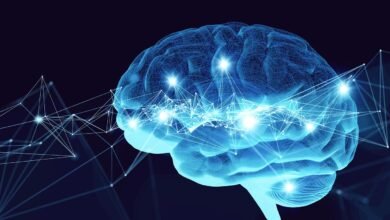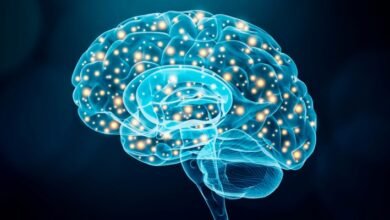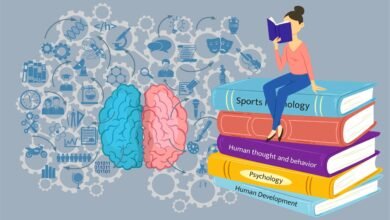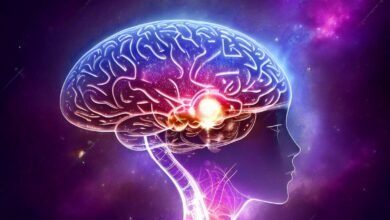Generalized Anxiety Disorder Treatment in 2023

Generalized Anxiety Disorder (GAD) is a common mental health condition that affects many individuals worldwide. In 2023, there have been significant advancements in the understanding and treatment of GAD. This article will explore various treatment approaches available for Generalized Anxiety Disorder (GAD) in 2023, focusing on both traditional and innovative methods.
Read More: Behavioral Therapy Techniques for Anxiety and Depression
Understanding Generalized Anxiety Disorder (GAD)
GAD is characterized by persistent and excessive worry about various aspects of life, including work, relationships, health, and everyday situations. It can cause significant distress and impairment in daily functioning. To effectively treat GAD, it is crucial to understand its symptoms and underlying causes.
Symptoms and Diagnosis of GAD
People with GAD often experience symptoms such as excessive worrying, restlessness, irritability, muscle tension, difficulty concentrating, and sleep disturbances. Diagnosing GAD involves a thorough evaluation by a mental health professional, considering the duration and intensity of symptoms. The DSM-5 criteria are commonly used for diagnosing GAD.
Psychotherapy for GAD
Psychotherapy, also known as talk therapy, is a fundamental treatment approach for GAD. Cognitive Behavioral Therapy (CBT) is highly effective in helping individuals identify and challenge negative thought patterns and develop healthier coping strategies. Other forms of therapy, such as Acceptance and Commitment Therapy (ACT) and Dialectical Behavior Therapy (DBT), can also be beneficial.
Medications for GAD
Medications are often prescribed alongside psychotherapy to manage GAD symptoms. Selective Serotonin Reuptake Inhibitors (SSRIs) and Serotonin-Norepinephrine Reuptake Inhibitors (SNRIs) are commonly used antidepressants that can help reduce anxiety. Benzodiazepines may be prescribed for short-term relief, but their long-term use is generally discouraged due to the risk of dependence.
Lifestyle Changes to Manage GAD
Making lifestyle changes is essential for managing Generalized Anxiety Disorder (GAD). Regular exercise, adequate sleep, stress reduction techniques, and healthy eating habits are key components. Engaging in physical activity releases endorphins and reduces stress hormones, while sufficient sleep promotes overall well-being. Practicing techniques like mindfulness meditation and deep breathing helps calm the mind and body. Adopting a balanced diet with nutrient-rich foods supports optimal brain function.
Complementary and Alternative Treatments for GAD
Complementary and alternative treatments can be used alongside conventional therapies to support individuals with Generalized Anxiety Disorder (GAD). These treatments include acupuncture, massage therapy, herbal supplements, yoga, mindfulness meditation, aromatherapy, and exercise. Acupuncture involves inserting needles into specific points on the body to promote relaxation. Massage therapy helps reduce muscle tension and induce relaxation. Herbal supplements like chamomile and lavender may alleviate anxiety symptoms.
Technology-Based Interventions for GAD
In recent years, technology-based interventions have emerged as a promising approach for treating GAD. Mobile applications and online platforms offer self-help resources, guided relaxation exercises, and cognitive restructuring tools that can aid in anxiety management. These interventions provide accessible and convenient support to individuals with GAD.
Developing a Support System
Building a strong support system is crucial for individuals with GAD. Friends, family, support groups, or online communities can offer understanding, encouragement, and a safe space to share experiences. Social support can help alleviate feelings of isolation and provide reassurance during challenging times.
Self-Help Strategies for GAD
In addition to professional treatment, there are several self-help strategies that individuals with GAD can incorporate into their daily lives. This includes practicing self-care, setting realistic goals, challenging negative thoughts, engaging in enjoyable activities, and using relaxation techniques. These strategies empower individuals to take an active role in managing their anxiety.
Cognitive-Behavioral Therapy for GAD
Cognitive-Behavioral Therapy (CBT) is widely recognized as an effective treatment for GAD. It focuses on identifying and modifying distorted thought patterns and behaviors that contribute to anxiety. Through CBT, individuals learn practical skills to manage their worries, challenge irrational beliefs, and develop coping mechanisms for long-term anxiety management.
Mindfulness and Relaxation Techniques
Mindfulness-based interventions and relaxation techniques have gained popularity in treating GAD. Practices such as meditation, deep breathing exercises, and progressive muscle relaxation promote relaxation, reduce stress, and improve overall well-being. Regular practice enhances self-awareness and helps individuals cultivate a sense of calm amidst anxiety.
Exercise and Physical Activity
Engaging in regular physical activity has been shown to have a positive impact on mental health, including GAD. Exercise releases endorphins, which act as natural mood elevators, and reduce stress hormones. Incorporating activities like walking, jogging, yoga, or dancing into one’s routine can alleviate anxiety symptoms and improve overall mental well-being.
Nutrition and GAD
Proper nutrition plays a vital role in managing Generalized Anxiety Disorder (GAD) and promoting overall mental well-being. A balanced diet with plenty of fruits, vegetables, whole grains, lean proteins, and healthy fats provides essential nutrients for optimal brain function. Omega-3 fatty acids from sources like fatty fish and nuts can help reduce anxiety symptoms, while B vitamins and magnesium support neurotransmitter synthesis and relaxation of the nervous system.
Read More: 13 Effective Stress Relief Strategies
Conclusion
In 2023, the treatment landscape for Generalized Anxiety Disorder has expanded significantly. A combination of psychotherapy, medications, lifestyle changes, complementary treatments, and technology-based interventions offer individuals with GAD a comprehensive approach to managing their anxiety. It is important to consult with a healthcare professional to determine the most suitable treatment plan based on individual needs.
FAQs
Can GAD be completely cured?
Generalized Anxiety Disorder cannot be completely cured, but it can be effectively managed through various treatment approaches.
How long does it take for GAD treatment to show results?
The duration of GAD treatment varies for each individual. Some may experience symptom relief within a few weeks, while others may require several months or longer.
Are there any natural remedies for GAD?
While natural remedies such as herbal supplements and relaxation techniques may provide some relief, it is essential to consult with a healthcare professional before trying them.
Can lifestyle changes alone help manage GAD?
Lifestyle changes, including exercise, healthy eating, and stress reduction techniques, can significantly contribute to managing GAD symptoms. However, they are most effective when combined with other treatment approaches.
Is it normal to experience setbacks during GAD treatment?
Yes, setbacks and fluctuations in symptoms are common during GAD treatment. It is important to communicate any concerns or changes in symptoms with a healthcare professional for appropriate adjustments to the treatment plan.












2 Comments